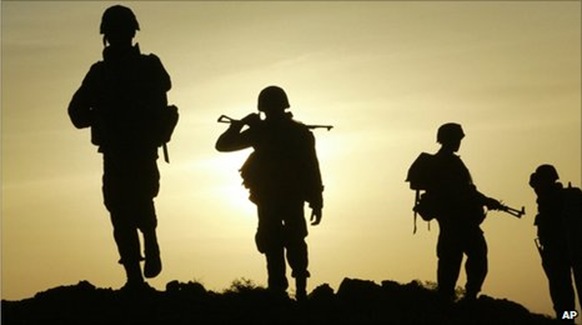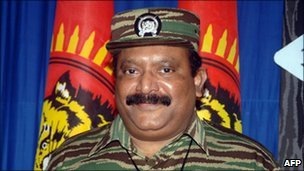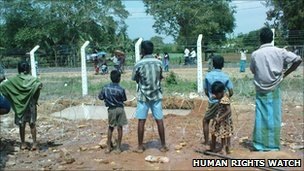 Around the world, Sri Lanka’s diaspora Tamils are meeting to mark Maveerar Naal (Heroes’ Day) and remember those who died during the failed insurgency.
Around the world, Sri Lanka’s diaspora Tamils are meeting to mark Maveerar Naal (Heroes’ Day) and remember those who died during the failed insurgency.
But back in the Indian Ocean island nation, many Tamils are either too scared of official retribution, or too apathetic to mark the second 27 November commemoration since the rebels’ defeat last year.
The Sri Lankan government has meanwhile been busy destroying the war graves and other memorials for the 20,000 insurgents killed during the three-decade conflict.
One such cemetery has been turned into a playground; another in Jaffna was converted into an army camp.
And no-one knows what has happened to the records scrupulously kept by the Liberation Tigers of Tamil Eelam (LTTE), who are thought to have financially supported the bereaved families.
Suresh Premachandiran, an MP from northern Jaffna, says his party, the Tamil National Alliance, has tried in vain to stop the demolition of war cemeteries.
"Destroying graves is unacceptable," he said. "Those people who were buried there are humans. They fought for the Tamil people."
He continued: "Recently when some Tamil civilians lit lamps to mark a Hindu festival in Kilinochchi, the local police thought they were trying to pay homage to the LTTE war dead and beat up them up."
In the past, large numbers of Tamils visited these war graves. In many places, cultural programmes would also take place.
But now they’re not sure what to do.
 "Those who lost their relatives would like to remember them," says Selva, a resident of Colombo, who did not want his full name published.
"Those who lost their relatives would like to remember them," says Selva, a resident of Colombo, who did not want his full name published.
"But if they do any kind of public display – like garlanding the photos of people in LTTE uniform, they will be arrested."
Sri Lanka’s deputy high commissioner in the UK, P M Amza, defended his government’s decision to demolish war graves, labelling them a rebel propaganda tool.
"We consider the LTTE a terrorist organisation," he said. "We feel all those associated with it form part of terrorism.
"There is no evidence to show the LTTE represented collective Tamil aspiration. They have killed many Tamil leaders."
Time to move on?
Human rights groups say both government forces and the rebels committed crimes against humanity during the conflict.
The LTTE were accused of recruiting children and firing at fleeing civilians during the final weeks of war.
It is an established fact that the LTTE killed thousands of Tamil youths who joined other armed groups in the early years of the rebellion.
But many Tamils who are outspoken about the government’s alleged war crimes say little about the charges against the LTTE.
 For many in the diaspora across the world, Heroes’ Day is an opportunity to gather and reaffirm their loyalty to the Tamil Tigers.
For many in the diaspora across the world, Heroes’ Day is an opportunity to gather and reaffirm their loyalty to the Tamil Tigers.
Large gatherings are planned in Britain, Canada, Switzerland, France and Australia.
Sam Krishna, media co-ordinator of the British Tamil Forum, said: "In addition to remembering those who sacrificed their lives for the Tamil cause, we will use the occasion to focus on the war crimes.
"We will once again press for an independent inquiry."
Velupillai Prabhakaran, killed on the last day of the conflict in May 2009, traditionally marked Heroes’ Day with a speech outlining his agenda for the year ahead, and the Tigers would stage a military parade.
But no organisation in Sri Lanka plans to commemorate 27 November this year. Some even say the time has come to move on.
A refugee who lives in the government-run camp in Vavuniya, in the north, said: "War has ended last year, but still we are in the camps. We lost everything due to war. There’s no point in talking about it."
(For updates you can share with your friends, follow TNN on Facebook and Twitter )
